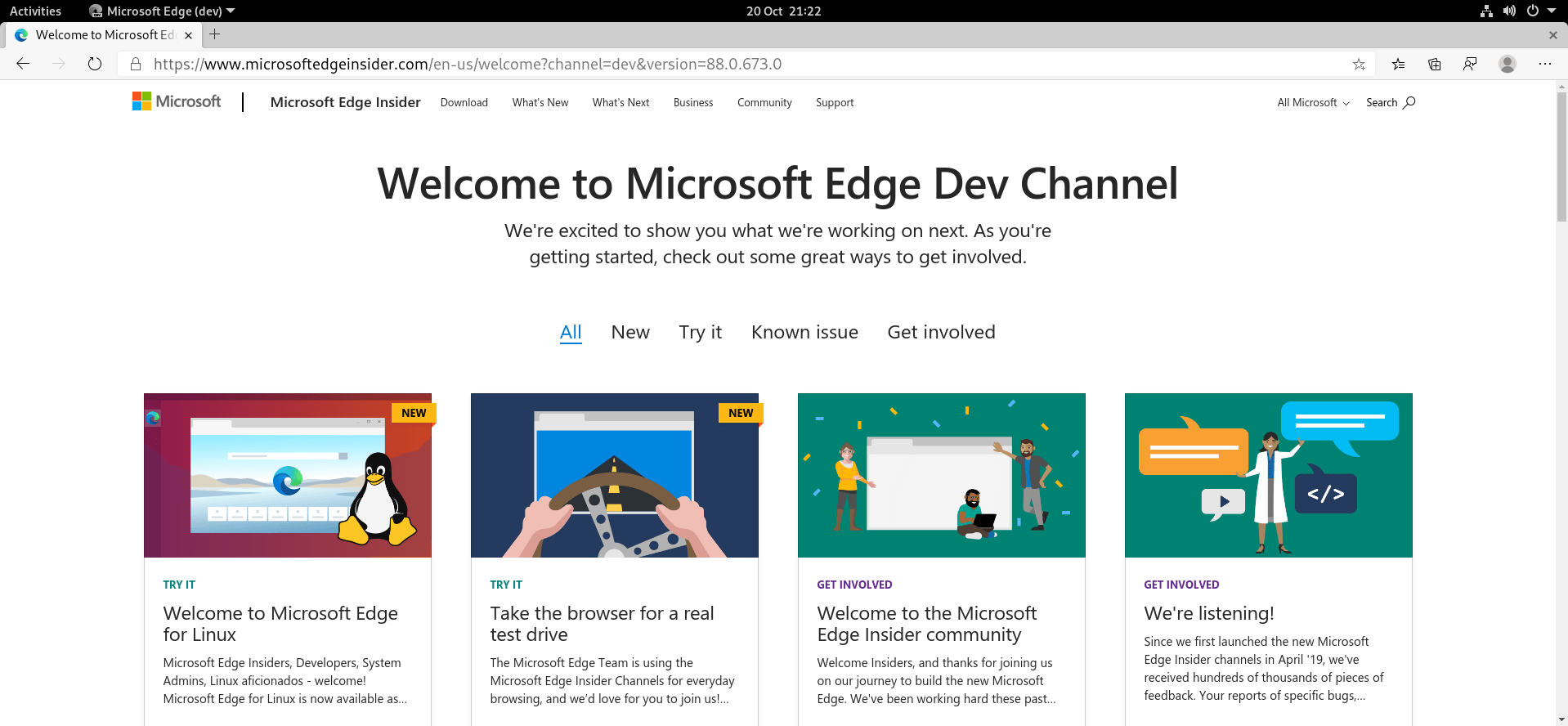
After a couple of years of rumours, Microsoft Edge for Linux is finally available for Ubuntu, Debian, Fedora, and openSUSE in Dev Channel form from Microsoft’s website). This version of Edge will be updated on a weekly basis, with future Beta and Canary versions hopefully available soon.
Bringing Edge to Linux is an important step in Microsoft’s vision of usurping Google Chrome. The end-user count is unlikely to increase much by releasing Edge on Linux, it does help increase their image and help prove that Microsoft now wants to be best friends with the FOSS community. While Edge is now based on the Google owned open-source Chromium project and shares a substantial amount of code and features with Google Chrome, Edge’s popularity doesn’t benefit Google. Microsoft has removed every Google feature from Chromium and replaced it with their own. Google’s URL prediction that sends data back to Google? Gone. Google’s Spell Check? Gone. Google Account syncing? Gone. For Windows users this isn’t news, but for Linux users wanting to get away from Google’s grip but don’t quite trust newcomer browsers with their data, or want the pushy feature-set of Opera, Edge is an option they may wish to consider. Whether you should trust another giant with your data is still up for debate, though.
Testing Edge on Linux, we can see a number of smaller features are missing at launch. Microsoft says they’re coming soon, but we’re currently missing the following features that are available on Edge for Windows and Edge for macOS:
- Connected Sign-In
- Read-aloud
- Differential updates
- Password and history sync
Microsoft says other features such developer tools, extensions, test automation, WebDriver, and Puppeteer will however work at launch, we’ll just have to wait a little longer for the ones above. Since it’s launching as a developer preview, the lack of some features at launch is forgivable.